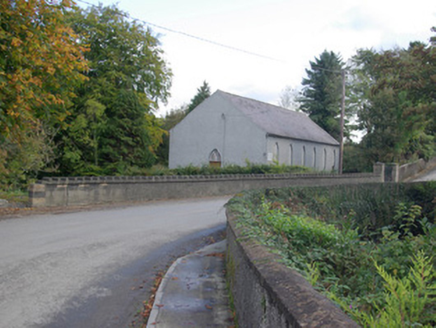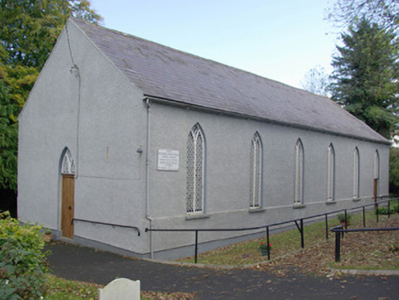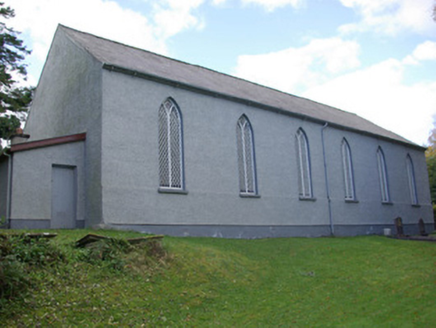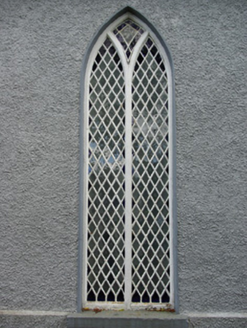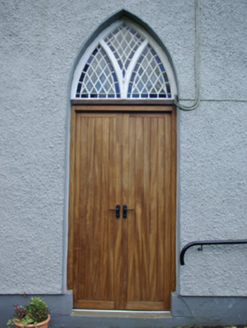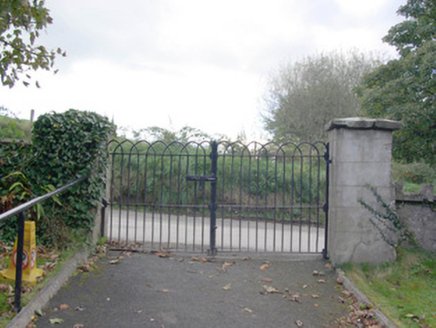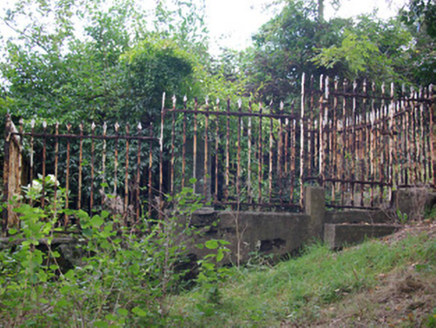Survey Data
Reg No
40832019
Rating
Regional
Categories of Special Interest
Architectural, Social
Original Use
Church/chapel
In Use As
Church/chapel
Date
1800 - 1810
Coordinates
222167, 401291
Date Recorded
16/10/2007
Date Updated
--/--/--
Description
Freestanding single-storey six-bay Reformed Presbyterian church/Covenanters meeting house, built in 1810, having modern single-bay single-storey vestry and boiler house extension to the south-east gable end. Pitched natural slate roof having projecting ashlar eaves course, and with cast-iron rainwater goods. Roughcast rendered walls, slightly projecting from body of church below window sill level, with smooth rendered plinth to base. Pointed-arched window openings with timber Y-tracery, stone sills, cast-iron diamond-pane quarry glass windows with coloured glass to outer panes. Pointed-arched doorway to the north-west gable end having plinth blocks to base, replacement timber double-doors, and with overlight having timber Y-tracery and cast-iron diamond-pane quarry glass windows with coloured glass to outer panes. Timber pews and panelling to interior. Set back from road in own grounds to the south-east of the centre of Convoy, adjacent to bridge over the Deele River. Graveyard with collection of gravemarkers, some in wrought-iron railed enclosures to site. Modern cement rendered boundary wall to road-frontage to the east having stepped coping over; rubble stone boundary walls to a number of the other boundaries. Gateway to the south-east end of boundary wall having a pair of smooth rendered ruled-and-lined gate piers (on square-plan) having capstones and a pair of hooped wrought-iron gates.
Appraisal
This interesting early nineteenth-century Reformed Presbyterian church/meeting house retains its early form and character. Its visual expression and architectural integrity are enhanced by the retention of much of its early fabric including natural slate roof and attractive diamond-pane cast-iron windows with coloured glass panels and timber Y-tracery. The pointed-arched openings give this building the bare minimum of a Gothic Revival character. It is one of six churches in Convoy, which reflects the religious diversity in the area. The plain main elevations and the lack of detailing is indicative of the restrained doctrine of the Reformed Presbyterian Church - buildings are typically simple in design, with a central pulpit, under which is a communion table. The origins of the Reformed Presbyterian church in Ireland are associated with the arrival of Scottish settlers in Ulster during the Plantations of the early seventeenth century, most of which were Presbyterian in religious belief. The Reformed Presbyterian Church was created by Presbyterians who objected to the disregarding of the Covenants (hence the name Covenanters), which was brought about by the Revolution Settlement of 1690, and they began to hold separate meetings to the Presbyterians. Initially they were dependent on visits from Scottish ministers from 1696 until 1757. In 1763 a 'Reformed Presbytery' was formed and rapid growth led to the formation of a Synod in 1811. Convoy is one of four congregations of the Reformed Presbyterian Church in Donegal, the others being at nearby Stranorlar and Letterkenny, with another congregation based in Millford. The simple but appealing hooped wrought-iron gates, the rubble stone boundary walls, and the graveyard to site add to the setting and complete this composition, which is an integral element of the built heritage and social history of the Convoy area. Set adjacent to a bridge over the Deele River in mature settings, its picturesque location makes a positive contribution to the local rural landscape.
